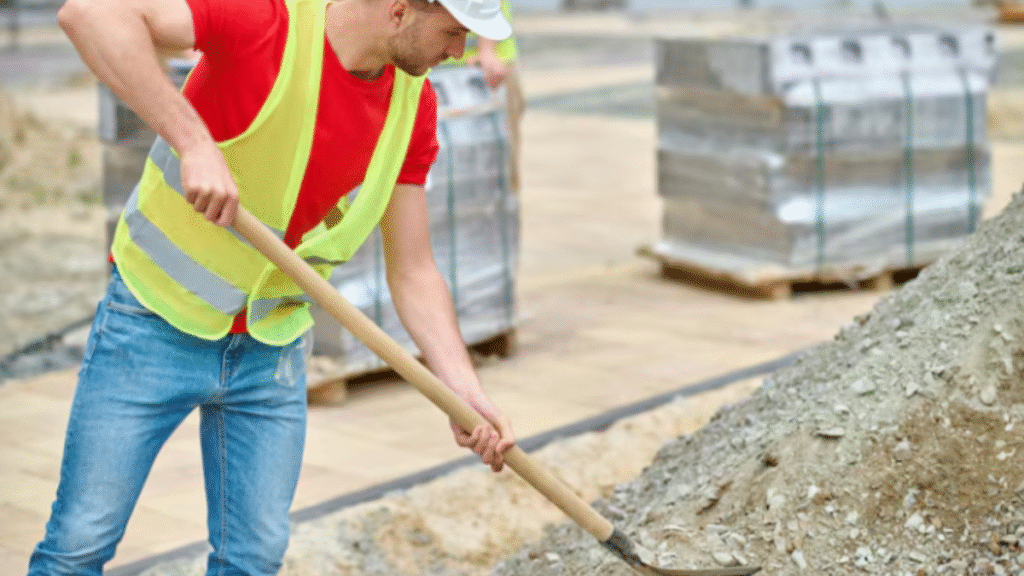Every durable surface we walk or drive on, be it a driveway, parking lot, or walkway begins with skilled planning, the right materials, and professional execution. While paving may appear simple on the surface, it’s actually a complex process that combines engineering precision with construction artistry. Behind every well-constructed surface lies the expertise of a paving contractor, whose skill determines not only how the pavement looks but how long it lasts.
Paving is more than just laying asphalt or concrete, it’s about creating a surface that balances function, safety, and aesthetics. From residential projects to large-scale commercial developments, professional paving services play a vital role in shaping the environments we use daily.
Understanding the Role of a Paving Professional
A professional paving expert specializes in designing, installing, and maintaining surfaces made from materials such as asphalt, concrete, and stone. Their role extends far beyond manual labor. They handle the entire process from site assessment and planning to material selection and final finishing ensuring that each project meets structural, environmental, and aesthetic standards.
Before work begins, a site must be properly prepared. This includes excavation, grading, and establishing an appropriate base layer to support the surface. Once the foundation is stable, the paving materials are applied in layers and compacted to achieve strength, uniformity, and longevity.
Modern paving requires a deep understanding of factors like soil type, drainage, climate conditions, and traffic patterns. These variables influence every decision, from the thickness of layers to the choice of sealants. A well-trained contractor knows how to balance these technical details for optimal performance.
Why Paving Matters More Than You Think
While many view paving as a finishing touch to construction, it actually serves a structural purpose. A well-paved surface distributes weight evenly, minimizes water infiltration, and provides safe traction for vehicles and pedestrians. Poorly installed pavement can quickly lead to cracks, potholes, and surface deterioration problems that become expensive to repair over time.
Moreover, well-designed paving enhances curb appeal. A beautifully paved driveway or pathway complements the surrounding architecture and landscaping. For businesses, it creates a positive first impression and communicates professionalism to visitors and clients alike.
The Science Behind Durable Surfaces
Durability is the result of both engineering precision and high-quality materials. Different paving materials serve different purposes:
- Asphalt: Known for flexibility and affordability, asphalt is ideal for roads and driveways that must handle varying weather and traffic conditions.
- Concrete: Rigid, long-lasting, and low-maintenance, concrete is excellent for heavy-duty applications like parking lots or industrial areas.
- Pavers and Stones: Decorative and durable, these are often used for walkways, patios, and high-end residential driveways.
Proper installation also involves compacting the sub-base to prevent shifting, ensuring adequate drainage to avoid water pooling, and using sealants to protect against environmental damage. These steps are essential in maximizing the life of the pavement and reducing long-term maintenance costs.
The Modern Evolution of Paving
The paving industry has evolved dramatically over the past few decades. Innovations in materials, design, and technology have transformed traditional methods into more efficient and sustainable practices.
New types of asphalt mixes reduce emissions and improve temperature flexibility, while permeable pavements help manage stormwater and reduce runoff. Additionally, advanced machinery such as laser-guided pavers and infrared compactors allows for unparalleled precision and consistency in installation.
Paving has also embraced sustainability. Recycled materials such as reclaimed asphalt and crushed concrete are now commonly reused in new projects. This approach reduces waste and lowers costs while maintaining strength and performance standards.
The Process of Professional Paving
A professional paving project involves several critical steps:
- Site Assessment: Contractors evaluate soil conditions, drainage needs, and the expected load capacity of the surface.
- Excavation and Grading: The area is cleared, leveled, and shaped to ensure proper drainage and stability.
- Base Preparation: A compacted foundation layer is added to support the surface and prevent future shifting.
- Material Application: Asphalt, concrete, or pavers are laid in layers, carefully compacted, and smoothed.
- Finishing and Sealing: Once the surface is set, sealants or protective coatings are applied to enhance durability and aesthetics.
Each stage requires precision, coordination, and experience to ensure long-lasting results.
Quality Control and Safety
A reputable paving contractor places equal emphasis on quality and safety. Construction sites must adhere to strict standards to protect both workers and the public. Safety gear, traffic management systems, and equipment maintenance are all essential parts of the process.
Quality control extends to materials as well. Samples are often tested for density, composition, and temperature to guarantee performance standards are met. This attention to detail ensures that the finished pavement can handle environmental stressors and heavy use for years without failure.
Aesthetic and Functional Design
Paving is as much an art form as it is an engineering discipline.A thoughtfully designed surface not only functions efficiently but also enhances its surroundings. Decorative options such as stamped concrete, colored sealants, and interlocking patterns allow homeowners and designers to achieve unique visual effects.
For commercial spaces, the layout and flow of paved areas must accommodate both vehicles and pedestrians, combining safety with aesthetics. Clean lines, clear markings, and smooth transitions create a professional, organized appearance that adds value to any property.
Maintenance: Protecting Your Investment
Even the best paving work requires ongoing maintenance to retain its strength and appearance. Regular inspections, cleaning, and sealing can prevent small issues from becoming major problems.
For asphalt surfaces, periodic sealcoating protects against UV damage, oxidation, and water infiltration. Concrete may need resealing or resurfacing over time to prevent cracking or fading. Keeping the surface clear of debris, oil spills, and standing water helps maintain both safety and appearance.
Proactive maintenance is the key to maximizing your investment’s lifespan and minimizing costly repairs.
Technology and the Future of Paving
Technological advancements continue to shape the future of paving. Smart systems, self-healing materials, and sustainable production techniques are revolutionizing the industry.
Researchers are developing self-healing asphalt that repairs small cracks automatically using embedded capsules that activate with heat.This innovation could dramatically extend the lifespan of roads and driveways while reducing maintenance costs.
Similarly, automated paving machines equipped with sensors and AI algorithms are making installations faster, safer, and more precise. The integration of renewable materials and carbon-neutral production methods reflects the industry’s commitment to sustainability.
The future of paving isn’t just about strength, it’s about creating intelligent, environmentally conscious infrastructure that benefits communities for generations.
The Value of Professional Expertise
Hiring a professional Paving contractor means gaining access to years of experience, specialized equipment, and a commitment to quality. These experts understand the technical and aesthetic aspects of paving, ensuring every project is built to last.
A contractor’s expertise translates into fewer mistakes, faster completion times, and long-term cost savings. They can identify potential issues before they arise and apply the most effective solutions for each unique project. Ultimately, professional paving is not just about laying material, it’s about building a foundation for safety, beauty, and reliability.
Conclusion
Paving is one of the most essential yet overlooked elements of modern construction. From the smallest driveway to the busiest roadway, expertly installed surfaces improve safety, functionality, and visual harmony.The success of any project relies on the skill and dedication of those who craft these foundations.
Behind every smooth surface lies the precision and commitment of a paving contractor, whose work combines artistry, technology, and engineering excellence. Through innovation, sustainability, and craftsmanship, these professionals continue to pave the way toward stronger, smarter, and more resilient surfaces that stand the test of time.







